Related Research Articles
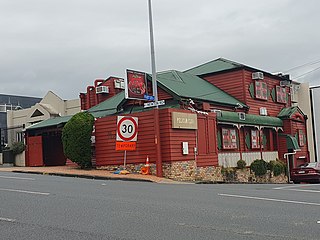
Prostitution in New Zealand, brothel-keeping, living off the proceeds of someone else's prostitution, and street solicitation are legal in New Zealand and have been since the Prostitution Reform Act 2003 came into effect. Coercion of sex workers is illegal. The 2003 decriminalisation of brothels, escort agencies and soliciting, and the substitution of a minimal regulatory model, created worldwide interest; New Zealand prostitution laws are now some of the most liberal in the world.
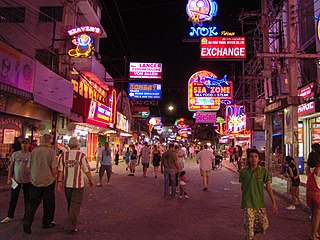
Prostitution in Thailand is not itself illegal, but public solicitation for prostitution is prohibited if it is carried out "openly and shamelessly" or "causes nuisance to the public". Due to police corruption and an economic reliance on prostitution dating back to the Vietnam War, it remains a significant presence in the country. It results from poverty, low levels of education and a lack of employment in rural areas. Prostitutes mostly come from the northeastern (Isan) region of Thailand, from ethnic minorities or from neighbouring countries, especially Cambodia, Myanmar, and Laos. In 2019, UNAIDS estimated the total population of sex workers in Thailand to be 43,000.

In Great Britain, the act of engaging in sex as part of an exchange of various sexual services for money is legal, but a number of related activities, including soliciting in a public place, kerb crawling, owning or managing a brothel, pimping and pandering, are illegal. In Northern Ireland, which previously had similar laws, paying for sex became illegal from 1 June 2015.
Prostitution in Ireland is legal. However, since March 2017, it has been an offence to buy sex. All forms of third party involvement are illegal but are commonly practiced. Since the law that criminalises clients came into being, with the purpose of reducing the demand for prostitution, the number of prosecutions for the purchase of sex increased from 10 in 2018 to 92 in 2020. In a report from UCD's Sexual Exploitation Research Programme the development is called ”a promising start in interrupting the demand for prostitution.” Most prostitution in Ireland occurs indoors. Street prostitution has declined considerably in the 21st century, with the vast majority of prostitution now advertised on the internet.
Prostitution in Denmark was partly decriminalised in 1999, based partly on the premise that it was easier to police a legal trade than an illegal one. Third-party activities, such as profiting from brothel administration and other forms of procuring, remain illegal activities in Denmark, as do pimping and prostitution of minors.

Prostitution in Australia is governed by state and territory laws, which vary considerably, although none ban prostitution outright.

The Prostitution Reform Act 2003 is an Act of Parliament that decriminalised prostitution in New Zealand. The Act also gave new rights to sex workers. It has attracted international attention, although its reception has been mixed. The Act repealed the Massage Parlours Act 1978 and the associated regulations.
Prostitution in Zimbabwe and related acts, including solicitation, procuring, and keeping a brothel, are illegal but thriving. Zimbabwe's dire economic situation has forced many women into sex work.
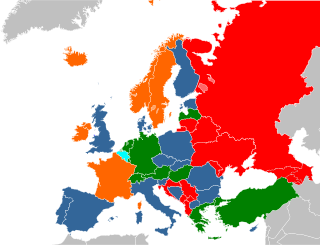
The legality of prostitution in Europe varies by country.
Prostitution in Scotland has been similar to that in England under the State of Union, but since devolution, the new Scottish Parliament has pursued its own policies.

The legal status of prostitution in Africa varies widely. It is frequently common in practice, partially driven by the widespread poverty in many sub-Saharan African countries, and is one of the drivers for the prevalence of AIDS in Africa. Senegal and Côte d'Ivoire permit the operations of brothels. In other countries, prostitution may be legal, but brothels are not allowed to operate. In some countries where prostitution is illegal, the law is rarely enforced.

Prostitution laws varies widely from country to country, and between jurisdictions within a country. At one extreme, prostitution or sex work is legal in some places and regarded as a profession, while at the other extreme, it is considered a severe crime punishable by death in some other places. A variety of different legal models exist around the world, including total bans, bans that only target the customer, and laws permitting prostitution but prohibiting organized groups, an example being brothels.
Prostitution in Namibia is legal and a highly prevalent common practice. Related activities such as solicitation, procuring and being involved in the running of a brothel are illegal. A World Bank study estimated there were about 11,000 prostitutes in Namibia.
Prostitution in Kyrgyzstan has been legal since 1998, but the operation of brothels, pimping, and recruiting persons into prostitution are illegal, with penalties of up to five years There are estimated to be 7,100 sex workers in the country. Prostitution occurs on the streets, in bars, hotels and brothels.
Prostitution in Botswana is not illegal, but laws such as public disorder, vagrancy, loitering and state recognised religious provisions are used to prosecute prostitutes. Related activities such as soliciting and brothel keeping are illegal. Botswana has made proposals to make prostitution legal to prevent the spread of AIDS. However, there has been mass opposition to it by the Catholic Church. Prostitution is widespread and takes place on the street, bars, hotels, brothels and the cabs of long-distance trucks.
Prostitution in Malawi is legal and prevalent around hotels and bars in urban and tourist areas. Living off the proceeds of prostitution is illegal. In 2015, it was estimated there were 20,000 sex workers in the country.
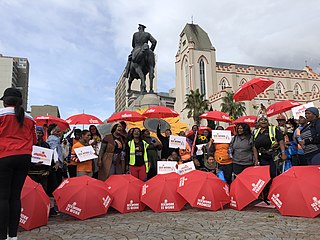
The decriminalization of sex work is the removal of criminal penalties for sex work. Sex work, the consensual provision of sexual services for money or goods, is criminalized in most countries. Decriminalization is distinct from legalization.
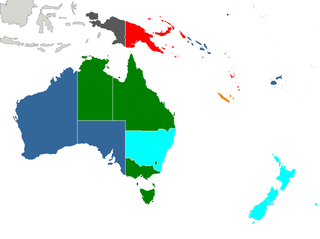
Prostitution in Oceania varies greatly across the region. In American Samoa, for instance, prostitution is illegal, whereas in New Zealand most aspects of the trade are decriminalised.
Ayanda Denge was a South African trans woman and sex trafficking survivor. She was an advocate for transgender people, sex trafficking survivors, and for the abolition of prostitution. She was the chairperson of the Sex Workers Education and Advocacy Taskforce (SWEAT). Denge has said that, "being transgender is ... a triple dose of stigmatisation and discrimination".
Prostitution in Papua New Guinea is generally regarded as illegal but widely practiced with the laws rarely enforced. Prostitution occurs on the streets, in bars, brothels and in logging, mining, and palm oil areas. In 2010 it was estimated there were 2.000 prostitutes in the capital, Port Moresby. The drought in 2016 caused a rise in prostitution. Many of the women have turned to sex work due to poverty or unemployment.
References
- 1 2 "Sexuality, Poverty and Law Programme". Institute of Development Studies. Retrieved 9 December 2017.
- ↑ "The Legal Status of Prostitution by Country". Chats Bin. Retrieved 9 December 2017.
- ↑ "Estimating the size of the sex worker population in South Africa, 2013" (PDF). SWEAT. Retrieved 9 December 2017.
- 1 2 3 "No condoms, more money say prostitutes". Sowetanl Lve. 11 September 2015. Retrieved 10 December 2017.
- 1 2 3 "Executive Summary South Africa" (PDF). ECPAT . Retrieved 10 December 2017.
- 1 2 3 4 5 "2017 Trafficking in Persons Report". US Department of State. Archived from the original on 3 July 2017. Retrieved 10 December 2017.
- ↑ – via Wikisource.
- ↑ – via Wikisource.
- 1 2 – via Wikisource.
- ↑ "Criminal Procedure Act 51 of 1977" (PDF). JUTA's Statutes of South Africa. Archived from the original (PDF) on 23 May 2012. Retrieved 9 December 2017.
- ↑ Johnson, Shaun (1989). South Africa: no turning back. Indiana University Press. ISBN 978-0-253-35395-5.
- ↑ – via Wikisource.
- ↑ – via Wikisource.
- ↑ "Prostitution 'still illegal' in SA". BBC News. 9 October 2002. Retrieved 10 December 2017.
- ↑ – via Wikisource.
- 1 2 "Long-awaited report on adult prostitution in South Africa released". ENCA. 26 May 2017. Retrieved 9 December 2017.
- ↑ "South African Law Reform Commission Project 107, Discussion paper on sexual offences and adult prostitution" (PDF). Pmg.org.za. Retrieved 2013-11-26.
- 1 2 3 "SA prostitution plans condemned". BBC. Retrieved 2008-03-01.
- ↑ "ANC Women's League wants to decriminalise prostitution". Gateway News. 26 March 2012. Archived from the original on 4 May 2012. Retrieved 10 December 2017.
- ↑ "Sex workers' vulnerability is our vulnerability". Daily Maverick. 2013-01-14. Retrieved 2013-11-26.
- ↑ "Decriminalise sex work: CGE". eNCA. 2013-05-16. Retrieved 2013-11-26.
- ↑ "What We Do | SWEAT". SWEAT. Retrieved 2017-12-15.
- ↑ "Why Sex Work Should be Decriminalised in South Africa". Human Rights Watch. 7 August 2019. Retrieved 7 August 2019.
- ↑ "South Africa: Decriminalise Sex Work". Human Rights Watch. 7 August 2019. Retrieved 7 August 2019.
- ↑ McCain, Nicole (5 December 2022). "Cabinet gives sex work decriminalisation bill green light for public comment". News24. Retrieved 26 December 2022.
- ↑ Manoek, Stacey-Leigh (August 2012). "A Report on Human Rights Violations by Police Against Sex Workers in South Africa" (PDF). Women's Legal Centre.
- ↑ Yingwana, Ntokozo; Walker, Dr Rebecca; Etchart, Alex (2019-04-02). "Sex Work, Migration, and Human Trafficking in South Africa: From polarised arguments to potential partnerships". Anti-Trafficking Review (12): 74–90. doi: 10.14197/atr.201219125 . ISSN 2287-0113.
- ↑ "World Cup 2010: 40,000 prostitutes to enter South Africa". Daily Telegraph. 5 Mar 2010. Retrieved 9 December 2017.
- ↑ Delva, W; Richter, M; De Koker, P; Chersich, M; Temmerman, M (7 December 2011). "Sex Work during the 2010 FIFA World Cup: Results from a Three-Wave Cross-Sectional Survey". PLOS ONE. 6 (12): e28363. Bibcode:2011PLoSO...628363D. doi: 10.1371/journal.pone.0028363 . PMC 3233553 . PMID 22163298.
- ↑ "60 percent of sex workers are HIV positive". Health 24. 5 July 2016. Retrieved 10 December 2017.
- ↑ "Report: South African health and HIV survey among female sex workers". Health E-News. 16 March 2016. Retrieved 10 December 2017.
- 1 2 "Sex Workers, HIV & AIDS". AVERT. 2 May 2017. Retrieved 10 December 2017.
- ↑ "South Africa 2018 Trafficking in Persons Report". U.S. Department of State. Archived from the original on 31 July 2018. Retrieved 30 July 2018.
